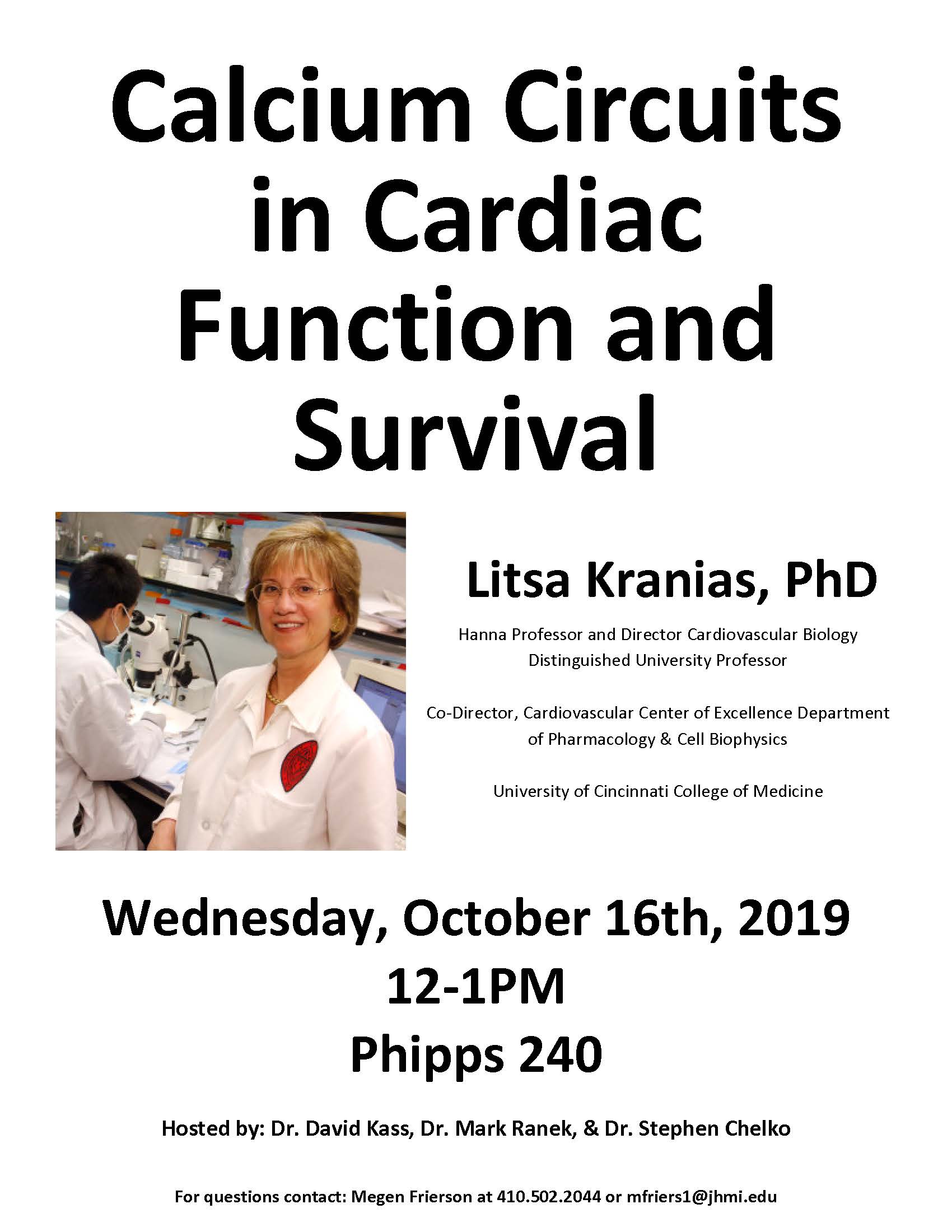The heart contracts because calcium cycles and activates muscle proteins. The October Institute of CardioScience will feature Dr. Litsa Kranias, one of the world’s leading authorities on just how this calcium is handled. In particular, she worked for many years on a protein called phospholamban that regulates calcium cycling into the sarcoplasmic reticulum. This continues, most recently to include a major new Fondation Leducq TransAtlantic Network of Excellence that is focusing on identifying and treating patients with phospholamban mutations that cause heart failure.
The October Institute of CardioScience Basic Seminar Series will take place on Wednesday, October 16, 2019 in PHIPPS 240 from noon-1 p.m.
Litsa Kranias, PhD, is working to better understand the complex network of proteins contributing to heart function. As a professor of Pharmacology and Systems Physiology, Director of Cardiovascular Biology and Co-Director of the Cardiovascular Center of Excellence, Kranias has dedicated her career to researching cardiac illness and mentoring the next generation of researchers. Much of Kranias’ research has focused on phospholamban (PLN), a cardiac protein that helps regulate contraction of the heart. However, Kranias and her colleagues discovered that PLN does not act alone—a complex set of proteins, including HAX-1, the heat shock protein 20 (HSP20) and protein phosphatase 1, work together to regulate PLN activity and cardiac contractility. They also discovered that PLN mutations can cause dire cardiac issues, such as heart failure and arrhythmia. But according to Kranias, the issues related to PLN mutations are not well-understood. “I think that a very important aspect of our career is training the next generation of scientists,” said Kranias. “This is probably the biggest legacy we leave behind. The research is important—it will move the field forward—but having scientists to continue that is even more important.” Kranias’ impact as a researcher and a mentor is international. She established a laboratory in Athens, Greece where they discovered PLN mutations. Now, she’s a corresponding member of the National Academy of Athens and the only female member in Sciences. It is just one example of Kranias’ impact on the research community both at the University of Cincinnati and in the global research community.
Pizza will also be served. Any and all interested are welcome to come.
